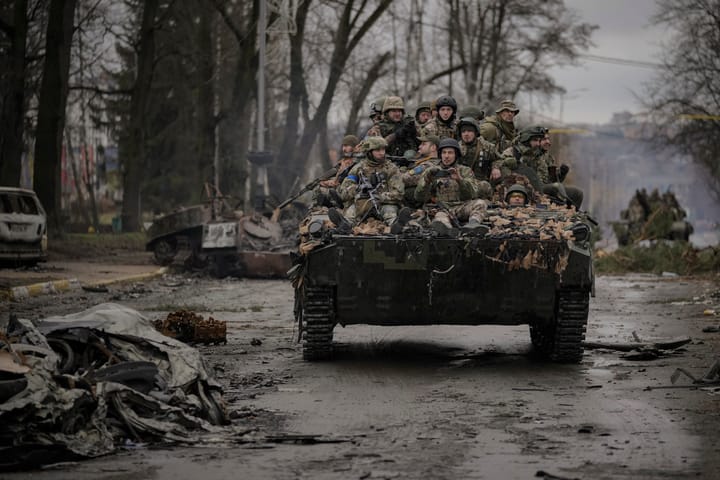Donald Trump is too weak and too insecure to understand soft power. He defaults to tantrums, threats, and brute force—because it’s all he knows.
Donald Trump doesn't understand soft power. He doesn’t trust it, doesn’t believe in it, and certainly doesn't know how to wield it. To him, power only works when it bruises. If it doesn't punch, it doesn't count. As a man, as a leader, as a bully, he is too weak to see the power in speaking softly.
Which is why America under Trump has become smaller, meaner, and less effective than at any point in its global history since the Second World War.
Soft power isn't a vulnerability. It's persuasion without coercion. It makes the world lean toward you instead of away from you. It's why a student in Lagos studies English literature, why a democracy protester in Hong Kong quotes Ben Franklin and Obama, why countries used to line up to make trade with the United States, and why American ideals—flawed as they are in practice—are still magnetic.
Trump bulldozed that - all of it - in a matter of months because he sees diplomacy as betrayal and alliances as scams. He considers every relationship a zero-sum hustle where you own the other guy or get played. The idea that power could be shared or values could be exported without bombs and sanctions makes no sense to him. So instead, he slaps tariffs on allies, threatens airstrikes when diplomacy stalls, and calls the whole sorry state of affairs a show of strength.
He doesn't understand the long game because he's never played one. Every move is transactional, reactive, and performative. It's not about winning people over; it's about dominating the moment. And if you need proof, look no further than his latest "deal-making" playbook: threatening Iran with bombing unless they come to the table on his terms while simultaneously gutting the very diplomatic channels that once led to a multilateral nuclear deal that actually worked.
When Trump pulled out of the JCPOA in 2018, he didn't offer a better strategy — he threw a tantrum. He replaced inspectors with threats, and now he floats the idea of flattening Iran if they don't fall in line. That's not negotiation. That's extortion dressed up as foreign policy. And it has left the U.S. isolated and the Middle East teetering.
He does the same thing with trade. While South Korea, China, and Japan work toward a regional agreement to stabilize markets, Trump barrels in with new tariffs and calls it "liberation." He can't see cooperation as anything but capitulation. He thinks a win means someone else lost and that anyone who doubts him is disloyal, even if they're an ally.
This is a man so addicted to blunt force that he doesn't realize the walls are closing in. America used to be the country that built coalitions, kept peace through strength balanced with restraint, and wielded influence through culture, values, and diplomacy. Trump has taken a sledgehammer to that legacy.
The world is adapting. Regional powers are forming their own pacts. Former allies are hedging their bets. Dictators are emboldened. The U.S. is still powerful but less trusted, less admired, and less listened to—not because its weapons have stopped working, but because its word has utterly failed.
Even within his own government, Trump prefers loyalist wreckers to competent experts. He fires generals who warn him, guts the intelligence community, and purges the diplomatic corps. He closes embassies and mocks development aid, failing to understand that helping build a school in another country can do more for American security than a dozen fighter jets.
He thinks symbolism is substance, that deleting a tribute to the Tuskegee Airmen is a realignment of priorities, that pulling embassy staff is an act of fiscal toughness instead of a retreat from relevance, and that culture wars at home are more important than stability abroad.
The result is a hollowed-out State Department, a demoralized military, and a foreign policy run on bluster. America under Trump isn't feared because of its strength. It's avoided because of its ignorance. It's the drunk, belligerent, and painfully racist uncle at the party that nobody wants to get stuck talking to. It is, in fact, the perfect representation of Trump's own voting base.
Meanwhile, adversaries study the chaos and capitalize on it. China expands its diplomatic footprint. Russia exploits America's diplomatic 4-year (at least) sick day. Even longtime partners find new footing away from Washington because they can't depend on a man who governs by vendetta and governs alone.
Soft power is credibility. It's showing up, staying engaged, and listening more than shouting. You cannot fake it with a flag pin or a fighter jet flyover. It’s earned. And under Trump, it's squandered.
You don't have to be a foreign policy expert to see the pattern. Trump doesn't read briefing books. He picks fights with allies. He leaks military plans on commercial chat apps. He governs by instinct, which might be less terrifying if his instincts weren't so shallow.
He doesn't comprehend soft power because it requires vision, patience, and an ounce of humility — qualities he neither possesses nor respects. And while he plays the strongman for crowds at home, the rest of the world sees what he really is: a man screaming at a mirror, mistaking volume for leadership.
America can be strong without being cruel. Powerful without being petty. Respected without being feared. But not under a man who only knows how to bludgeon.
Trump's America is loud, brittle, and alone. That isn't power. That’s abject failure.
Now, more than ever, the world needs an independent press that is unencumbered by commercial conflicts and undue influence.
By taking out an optional founding membership, you can help us build a free, accessible, independent news platform firewalled from corporate interests.
Support The Index



